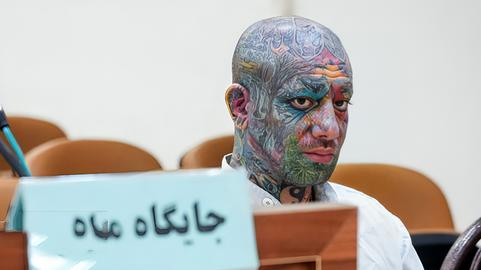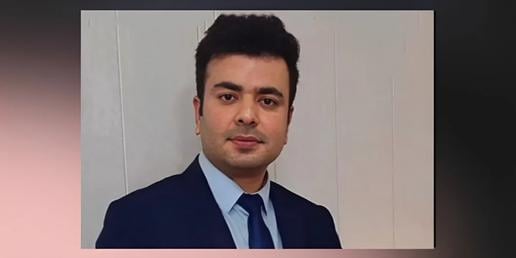Hero or traitor? Sacrifice or betrayal? Whistleblowing is a divisive issue, and no one is more controversial than Edward Snowden, the ex-National Security Agency (NSA) employee who exposed countless abuses by US intelligence services. For some, Snowden is a hero, a man who threw away his life and freedom for the “greater good,” while many others see him as a traitor who endangered the lives of US civilians for his own personal gain.
Public opinion is polarized when it comes to Snowden, and this is much the same as whistleblowing in general. But what exactly is it, and what are the pros and cons of “blowing the whistle”? Do whistleblowers only exist in democracies? IranWire looked into the world of whistleblowing.
What is a whistleblower?
A whistleblower is a person who reports illegal activity. Individuals who decide to release information of a sensitive nature are required to make difficult judgment calls, particularly when laws are vague or the behavior being reported is unethical but not necessarily illegal. Whistleblowers report on organizations, companies and individuals, to an internal or external party. If the activity is reported internally, the information will be taken to a source within the organization, while external whistleblowing is a process of informing a body outside the organization, perhaps the media or the relevant regulators. For instance, if an individual works in a company in the United States and realizes fraud has taken place, he or she would go to the Securities and Exchange Commission (SEC).
Does whistleblowing happen in all sectors? Which sectors does it happen in most often?
People can and have blown the whistle in every sector imaginable, but the most notable include instances of government corruption, the nuclear industry, the health sector, law enforcement, the intelligence services, and education.
What do advocates of whistleblowing say in its defence?
1. It is the right thing to do:
When someone blows the whistle, unethical behavior is brought to light and, morally-speaking, this is good for society.
2. It is in the public interest:
It is the public’s right to know the information in question and in certain cases it is in the interest of public safety as well. Take for instance Jeffrey Wigand – he personally exposed how the tobacco industry was knowledgeably harming smokers but denying the fact it knew. His revelation meant the public was better informed on the negative impact of smoking on a person’s health.
3. It is better for employer-employee relations:
In a working environment, if an employee knows that a person or organization is acting immorally this can hamper relations between that employee and their superiors. This in turn can affect a person’s motivation to perform well in their job and fulfilling their potential.
4. It could save a company:
If an employee speaks up internally, this allows a company to try to repair the damage and take responsibility instead of being overwhelmed when the information comes out externally. For instance, WorldCom, a telecommunications company that is now known as MCI, Inc, carried out an internal audit that uncovered $3.8 billion dollars in fraud and came clean about the scandal. Most scandals of this magnitude cause a company to go bankrupt but MCI, Inc continues to exist as a part of Verizon.
5. It promotes good governance:
“Blowing the whistle” can be crucial in highlighting the actions of corrupt officials. In China, whistleblowers have played a crucial role in tackling corruption. For instance, Ke Zunnian, a doctor from Shaanxi Province, has been fighting corruption in the communist party since 2003, when he accused his local party secretary of being corrupt.
What are the drawbacks of whistleblowing?
1. It can be seen as an act of betrayal:
Whistleblowing can be seen as a betrayal of the company or organization being exposed, particularly if an employee or a member of the organization is doing the whistleblowing. This is why John Kerry accused the NSA (National Security Agency) insider Edward Snowden of being a traitor; it is why New York Congressman Pete King called for the US Attorney General to designate Wikileaks as a terrorist organization and for its founder Julian Assange to be prosecuted for espionage. Snowden, who revealed “highly sensitive” techniques for US foreign intelligence gathering, is also charged with breaking the law for having “stolen” classified information. Many people, both inside and outside the US, believe he jeopardised national security and the lives of NSA agents. Critics of Wikileaks follow a similar argument – US military officials contend that if their enemies have access to their strategic documents, it puts the lives of US soldiers abroad in danger.
2. It can ruin corporations:
Reporting unethical behaviour, particularly externally, can bring a corporation down. This is what happened when Jeffrey Wigand reported what he had experienced at tobacco company Brown & Williamson (B&W) to CBS’ 60 Minutes, and Congress later on.
3. Jobs might be lost:
Naturally, when a company is terminated, employees lose their jobs. At B&W, about 3,000 people became unemployed after the scandal broke.
4. It can ruin the reputation of an organization:
When information pertaining to unethical practice comes out, it is often difficult to look at an organization in the same way again. Take Sergeant Joe Darby, who stumbled upon shocking images of US soldiers humiliating Iraqi prisoners at Abu Ghraib prison. This created strong criticism of the US military and undermined peoples’ trust in it.
Are there whistleblowers in authoritarian regimes?
Whistleblowers have a challenging time in democracies — and the situation is even worse in totalitarian societies. In Russia, whistleblowers are frequently harassed and targeted by the authorities and citizens. In China, the situation is much the same despite the fact that President Xi Jinping pledged to beat corruption when he took office in 2012, acknowledging the role that whistleblowers can play in this. Although it is hard to generalize, countries run by authoritarian regimes rarely provide legal protection for whistleblowers, and if they do, this protection is unlikely to be properly implemented.
What are the dangers?
Being a whistleblower poses significant risks for the person divulging information, and only a handful of people are successful in bringing wrongdoings to light in a way that affects real, lasting change. As tobacco whistleblower Jeffrey Wigand told IranWire, “In terms of challenges, there were financial ones, family ones, and psychological ones. The company tried to smear me by going to my ex-employers, my ex-wife; they did everything they could do to try and discredit me.”
1. Financial implications:
“Blowing the whistle” often leads to the person who has exposed sensitive information losing his or her job and impacts on their future career prospects. Enron whistleblower Sherron Watkins told IranWire: “The problem is that once you’re known as a whistleblower it’s synonymous with “troublemaker,” so finding a job in corporate America is a real challenge. I needed to be creative about what my second job was going to be.”
2. It is a time-consuming and legal-intensive process:
Whistleblowing often entails expensive and time-consuming legal battles. For instance, it took eight years for a whistleblower who exposed contamination problems at pharmaceutical company GlaxoSmithKline’s (GSK) plant in Puerto Rico to put the court case to bed. In this case, the outcome of the legal dispute was in favor of the whistleblower, but frequently, this does not happen.
3. Family problems:
It may be that those closest to whistleblowers, whether they are friends or family, do not agree with what the whistleblower has done, which can create problems. The wife of whistleblower Jeffrey Wigand left him and took their children with her before his battle with the tobacco industry was finalised.
4. Psychological impact:
Being a whistleblower can be a lonely and emotionally straining affair. For instance, Julian Assange has lived in the Ecuadorian Embassy in London for more than two years, while Edward Snowden has lived in Moscow, Russia for more than a year, where he is physically isolated from his family, friends and lawyers.
What incentives and protection do whistleblowers have in the West?
Protection varies vastly depending on the country. Under US rules, whistleblowers are protected by the Whistleblower Protection Act and entitled to significant rewards: the Dodd Frank Act stipulates that the Securities and Exchange Commission (SEC) will pay a reward to whistleblowers who voluntarily provide information leading to a successful SEC investigation, resulting in monetary sanctions of more than $1,000,000. These pay-outs to whistleblowers are between 10 to 30 per cent of the total imposed fine. In September, the SEC announced it would be giving an anonymous tipster living abroad more than $30 million for “blowing the whistle.”
In Europe, national laws protecting whistleblowers vary greatly. In 2013, the European Commission rejected calls from MEPs for a EU-wide whistleblower protection law. Transparency International’s whistleblower coordinator Mark Worth told Deutsche Welle: “The only country in the EU that has a strong whistleblower law and where there is a somewhat well functioning enforcement system is the UK. Britain has had a law on the books since 1998 that protects employees in the public and private and also the non-profit sectors. So if you follow the procedure to blow the whistle on wrongdoing, corruption, crime and so forth and it is in the public interest, then you'd be legally protected from being fired, demoted, harassed, or being transferred against your will. “
Other European countries have whistleblower laws in place but these give little protection. For instance, in Romania and Slovenia, the law only protects government employees, while in Hungary, there is a whistleblower law but no agency has been set up to administer it. Many other countries have no protection for whistleblowers at all.
Why are whistleblower protection laws so weak?
Whistleblowing is a relatively new area of law. In the US, the first whistleblower legislation was brought in the late 1970s when government employees became protected by law. In Europe, the debate on whistleblowing only began in the 1990s, with Britain passing the Public Interest Disclosure Act (PIDA) in 1998. After that, several more European countries brought in whistleblower laws between 2008 and 2009. The number of whistleblowing cases around the world has increased in the years following the financial crisis. US-based SEC reports that there have been 3,630 whistleblower tips in 2014, 3,238 in 2013, and 3,001 in 2012.
Transparency International’s Mark Worth said, “there’s been a huge surge in the proposing of whistleblower laws in the last two years in Europe. And it's a combination of factors like the financial crisis, political instability, or the media realizing that whistleblowers can be valuable sources of information.”
Clearly whistleblowing remains controversial, and this often translates into whistleblowers receiving little legal protection and support, even in the freest of societies. And, the situation is even worse for whistleblowers in countries that fail to enforce adequate human rights; they are harshly treated and targeted by both the state and the people. But people should never be harassed for speaking up. If whistleblowers are to have any hope of relief, governments need to make their citizens feel that they can speak up without fear. There has been some progress, particularly in the US and Britain, but there is still a very long way to go. Governments should act now.


























comments